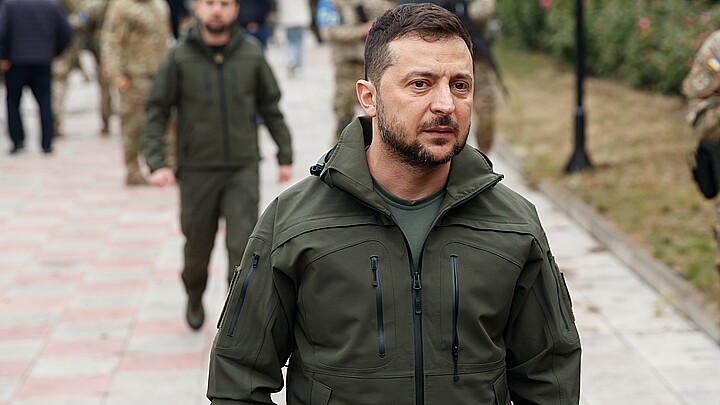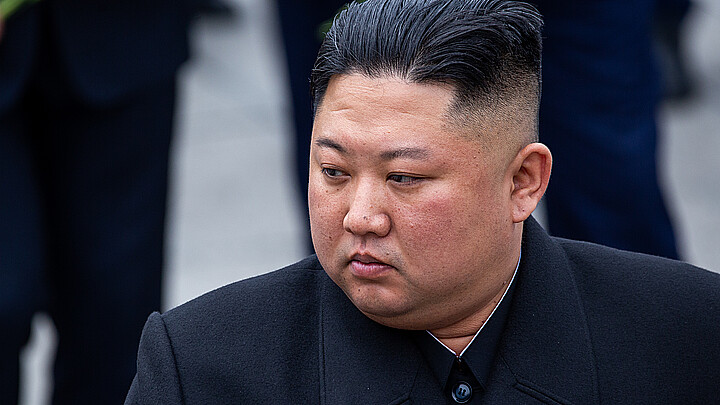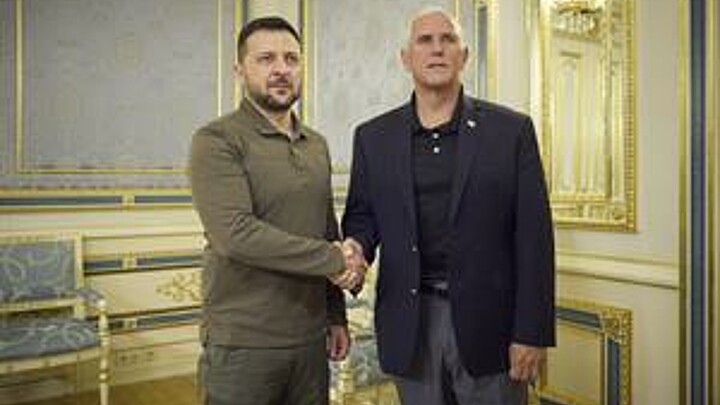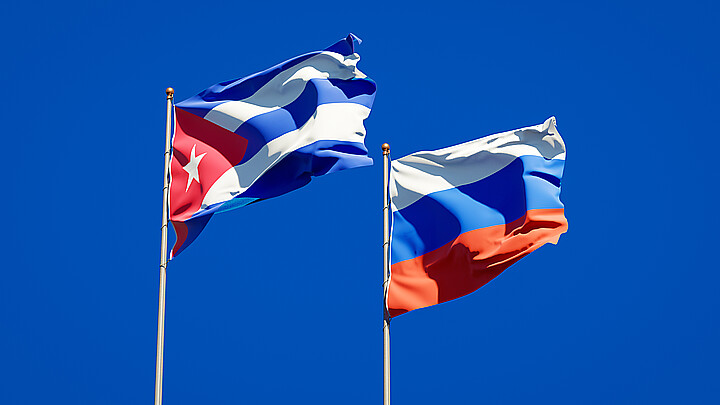Politics
U.S. commander says China's 'no-limits' support of Russia threatens humanity
Beijing engaging in largest military buildup since World War II, says Adm. John Aquilino.
June 24, 2022 11:52pm
Updated: June 25, 2022 11:38am
China's assertion of a "no-limits" partnership with Russia has alarmed the Pentagon and risks endangering all of humanity should the two nations continue to grow closer, according to the commander of U.S. military forces in the Pacific.
"From where I sit, the most concerning aspect of [Russia's war in Ukraine] is that the People's Republic of China has declared a no-limits policy in support of Russia and what that means to both the Indo-Pacific and the globe," Adm. John Aquilino, head of U.S. Indo-Pacific Command, said on Friday.
"If those two nations were to truly demonstrate and deliver a no-limits policy, I think what that means is we're currently in an extremely dangerous time and place in the history of humanity, if that were to come true," said Aquilino, speaking at an event hosted by the Foundation for Defense of Democracies, a Washington think-tank.
In February, Chinese leader Xi Jinping met Russian President Vladimir Putin in Beijing, where they heralded their relationship in a sweeping joint statement.
"Friendship between the two states has no limits," the two leaders said. "There are no 'forbidden' areas of cooperation."
The meeting came three weeks before Russia invaded Ukraine. China has refused to condemn Russia's invasion and has echoed Russian talking points about the war.
Aquilino praised the Ukrainian people for defending their country and touted the efforts of the U.S. military and U.S. allies to help Ukraine defend itself.
"Globally what we see is that the world is certainly unwilling to accept a single person's actions -- illegitimate, unprovoked -- to change the world order, the status quo, the international rules-based order through an unprovoked, illicit invasion," he said.
The commander's comments came after President Biden's national security adviser, Jake Sullivan, said that a weak U.S. response to Russia's invasion of Ukraine "would send a message to other would-be aggressors, including China, that they could do the same thing."
Analysts have warned that China is studying the Russia-Ukraine war to learn lessons for a potential future invasion of Taiwan, an island located about 100 miles away from China across the narrow Taiwan Strait.
China's communist government considers Taiwan, a self-governed democracy, a renegade province that must be reunified with the Chinese mainland — by force if necessary.
"China's reunification is a great cause of the Chinese nation, and it is a historical trend that no one and no force can stop," Chinese Defense Minister Wei Fenghe told a security conference in Singapore this month.
"We will resolutely crush any attempt to pursue Taiwan independence. Let me make this clear … We will not hesitate to fight. We will fight at all costs, and we will fight to the very end. This is the only choice for China."
With U.S. Defense Secretary Lloyd Austin in the audience, Wei said Taiwan "is first and foremost China's Taiwan."
"No one should ever underestimate the resolve and ability of the Chinese armed forces to safeguard its territorial integrity."
For decades, Washington has maintained a policy of "strategic ambiguity" toward Taiwan, supporting the democratic island with weapons and training to deter China from attacking while simultaneously reassuring Beijing that Washington won't accept formal Taiwanese independence.
China somewhat regularly flies warplanes into Taiwan's self-declared air defense identification zone, causing Taiwan to scramble its own combat aircraft to warn the Chinese jets away. The most recent incursion occurred on Tuesday.
Afterward a U.S. Navy reconnaissance plane flew over the Taiwan Strait in a demonstration of America's "commitment to a free and open Indo-Pacific," U.S. Indo-Pacific Command said in a statement.
The U.S. recently rebuffed China's description of the Taiwan Strait as a Chinese body of water, describing it instead as an international waterway.
In March, Aquilino's predecessor at Indo-Pacific Command, Adm. Philip Davidson, testified to the Senate Armed Services Committee that the threat of China invading Taiwan will become critical in "the next six years."
Xi has said China plans to achieve military parity with the U.S. in Asia by 2027, which would roughly fit with Davidson's six-year figure.
But former U.S. Defense Secretary Robert Gates argued in a recent podcast that the likelihood of a full-scale Chinese invasion of Taiwan is "very low." But he said China could still "bring Taiwan to its knees" without firing a shot through cyber warfare and economic pressure.
Taiwan isn't the only island in the Pacific under threat from China. Guam, a U.S. territory in Micronesia, is another potential target.
"Guam has a 360-degree threat, so our ability to defend it and to be able to operate from there is absolutely critical," said Aquilino. “I won't have any timeline, so I could see a continuous improvement and a continuous threat, and what that leads me to do is to move with a sense of urgency."
Aquilino said some 125,000 U.S. citizens call Guam, which some analysts have described as America's most important military base in the western Pacific, home.
The growing Chinese missile threat to Guam is part of China's larger military buildup, which Aquilino described as the largest the world has seen in decades.
"Militarily, what we are seeing from my seat is the largest military buildup in history since World War II," said Aquilino. "That buildup encompasses all domains and all capabilities," including warplanes, naval ships, missile forces, nuclear weapons, weaponry in space, and cyber operations.
"The concern for all Americans should be the pace, scale, and scope that China is growing and what that means with regard to intent for a future peaceful globe," he said.
Indo-Pacific Command estimated in a report to Congress last month that the region needs about $67 billion in new military investment between 2024 and 2027 to maintain America's comparative military advantage over China.
In April, Indo-Pacific Command sent Congress a list of unfunded priorities totaling about $1.5 billion for fiscal year 2023 alone.
Aquilino recently told the Washington Post that the 2020s are "the decade of concern" in terms of China potentially surpassing U.S. military power in Asia.
On Friday, Aquilino warned that the U.S. can't afford to dawdle as China invests in rapid and large-scale military growth.
"I don't think we can operate under a business-as-usual mindset," he said. "I think we have to understand the concern of what does a future look like based on the security environment and some of the objectives of our competitors."
"And I don't think that future is something that any of us would be happy with."










